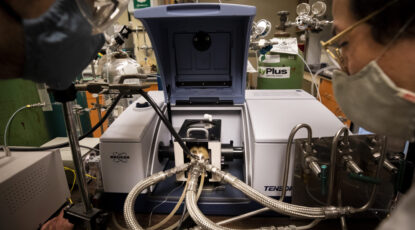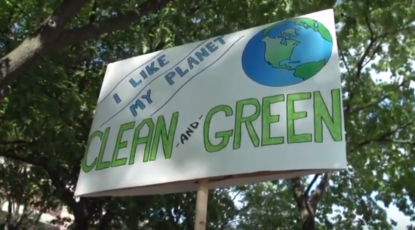Environment
-
Water affordability crisis looms
Water and sewer service affordability, at both household and community levels, is a widespread problem across Michigan. A new study warns it may get worse if left unchecked.
-
U-M combats residential flooding in Detroit
The city’s aging infrastructure is no match for the severe effects of climate change. But with $1 million from the Kresge Foundation, U-M’s School for Environment and Sustainability will work with local partners to mitigate flooding and other concerns.
-
$2M to replace fossil fuels with solar power in fertilizer production
U-M researchers will study the effectiveness of a new ammonia production process aimed at reducing greenhouse gas emissions. Bringing the process directly to farmers could cut environmental costs by reducing transportation requirements.
-
Lake Huron sinkhole surprise
Researchers propose that increasing day length on the early Earth may have boosted the amount of oxygen released by photosynthetic cyanobacteria, changing the planetary rotation rate.
-
U-M commits to carbon neutrality universitywide
President Schlissel at May 2021 Regents meeting: U-M will achieve carbon neutrality across all greenhouse gas emission scopes, committing to geothermal heating and cooling projects, electric buses, and more.
-
17-year cicadas and tree damage: What to expect
The cicadas can damage small trees and shrubs so the best defense is to cover vulnerable or smaller trees with mesh or netting; insecticides should not be used, experts say.
-
Biologist eagerly awaits cicada song
After developing underground for 17 years, the buzzing, bug-eyed horde of cicadas known as Brood X is expected to emerge by the billions in May across southeastern Michigan and other eastern states. Let’s sing!
-
University sourcing electricity from new wind parks
Approximately half of the purchased electricity for U-M’s Ann Arbor campus will soon come from Michigan-sourced renewable resources.
-
Private sector action may be linchpin to conservative support on climate change
Study: Conservatives are more supportive of private-sector action than public-sector action, while liberals are more supportive of government regulations than private-sector action or a carbon tax.










